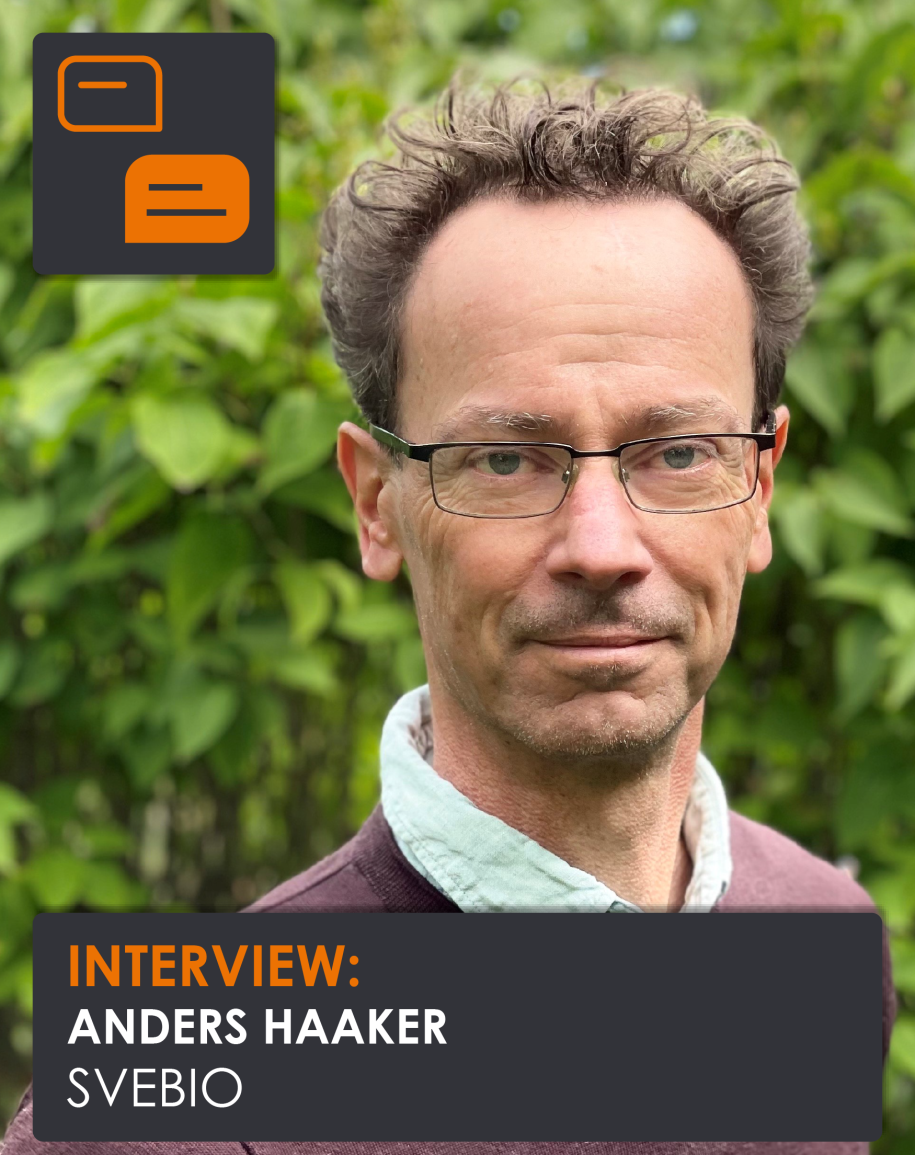Anders Haaker from Svebio about the state of the Swedish pellet market
We go on a trip north to meet our next collocutor. Anders Haaker from Svebio will tell us what is happening in the Swedish pellet market at the moment, what role ENplus® plays in it and what the future holds.
Dear Anders, introduce us to Svebio and its role as an ENplus® National Promoting Association.
Svebio, Swedish Bioenergy Association, was founded 43 years ago in 1980. Svebio has a vision of a 100 percent renewable energy system, where several renewable energy sources contribute to this vision. Today, bioenergy accounts for 39,3 % of the energy use in Sweden, and renewable energy for 60,6 %.
Svebio became an ENplus® National Promotion Association (NPA) in 2019. I started to work as NPA-contact person two years ago. There were a total of 56 pellet producers in Sweden in 2022 with a total production of 1.8 million tons. Out of these, five plants are certified with ENplus® and they produce 15 % of the total production in Sweden.
Pellet production capacity is growing in Sweden. In 2022 the capacity was 2,4 Mtons. Investments will add 300 000 tons production capacity until 2025. And we have found out about other early phase plans bringing an additional 300 000 tons of capacity.
The public awareness of pellets, pellets stoves and ENplus®-certified pellets in Sweden is lower than in many other countries. Despite the fact that thousands of consumers actually buy and use ENplus®-pellets, many are not aware of it and do not specifically ask for it. This is something we are trying to change together with the certified companies in Sweden.
Last winter was not an easy one for the pellet consumers because of price increase. What is the situation in Sweden now?
The price increase for pellets started a bit later in Sweden than in many other European countries. In August and September last year the price almost doubled within a few weeks. Consumers were very upset and media wanted to find the reason behind the price increase.
For me personally, it was a period of very intensive few weeks. The price level did not reach as high as it did for example in Denmark. It has not fallen back to previous levels, but remained at similar levels as one year ago.
Do you believe Swedish people will remain loyal to using pellets? What is your long-term forecast?
I would say that people in Sweden have mixed feelings about pellets. Some have not accepted the situation and have changed their heating systems. Still, electricity price was even more extreme than pellets price last winter, and people who already had invested in a pellet stove or boiler used it as much as they could, and were happy that they could cut their electricity bill.
The long-term situation depends, of course, on the future price level of pellets and electricity, and on winter temperature, which is difficult to predict.
The Swedish Pellets Association has started a campaign to raise awareness of pellets and pellet stoves. Our objective is 200 000 new pellet stoves installed in ten years. Today we have something like 20 000 pellet stoves installed in total, and almost 2 000 000 biomass local space heaters, mostly wood stoves in Sweden. If we succeed, we will go from a share of 1 to 10% pellet stoves in ten years.
What would you like to say to all the local wood pellets producers and traders that are not yet ENplus®-certified?
I think that you have to look at certification as a long-term investment in building a stronger quality reputation for your pellets for consumers. I think many producers understand the difference between a standard and a certification, but they see certification only as a cost, because it is difficult to increase the price for ENplus® certified pellets. But maybe the situation will change now when I see more interest among pellets stove suppliers that are entering the Swedish market. The stove suppliers often want their customers to use ENplus®-certified pellets to get a hassle-free and efficient experience.

